With 2 in 3 brands expanding their influencer programs, the pressure to maintain influencer marketing compliance while scaling is at an all-time high. Marketers face a daunting challenge: stay compliant or risk fines and backlash.
But what if compliance could be your competitive edge?
With the right compliance tools in place, you can:
- Automate regulatory adherence
- Monitor influencer content effortlessly
- Build trust through transparency
Let’s transform your approach to influencer marketing compliance, making your campaigns both compliant and compelling.
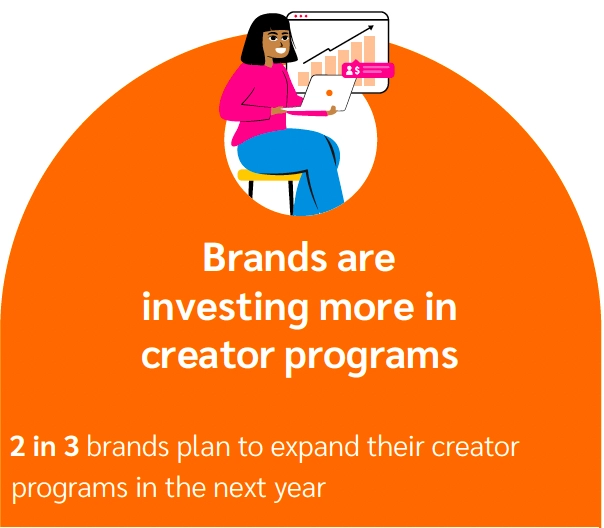
Why Influencer Marketing Compliance Matters for Consumers and the FTC
Today’s purchase journey starts with trust. When impact.com asked consumers what drives their buying decisions, 57 percent wanted transparency for consumers, clear visibility into brand–influencer relationships. That makes ethical regulatory compliance not just a legal obligation, but a growth driver.
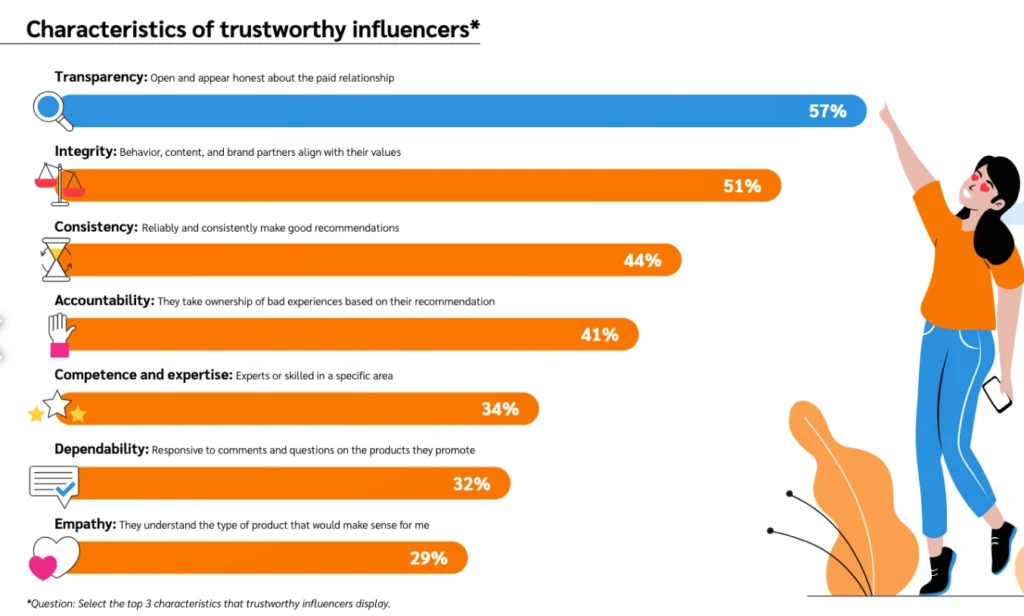
In this excerpt of The state of influencer marketing for consumers in 2023, transparency comes out on top for consumers.
Disguising paid endorsements or sponsored content is a losing game. More than half of the viewers surveyed spot it instantly. But forward-thinking brands are embracing advertising transparency, turning once-skeptical viewers into advocates through open, authentic partnerships.
Complying with guidelines for influencer marketing, such as those set by the Federal Trade Commission (FTC), is key to maintaining trust. When you brief influencers to disclose paid partnerships clearly and consistently, you protect your brand and the influencer from potential legal issues or backlash. You’ll also strengthen your authenticity and credibility with your audience.
Remember, FTC violations don’t just affect influencers—they can significantly impact your brand. Cases involving prominent creators often make headlines, drawing negative attention to everyone involved. Violations can lead to fines of up to $44,000 per incident, a heavy price for something as simple as clear disclosure.
Top Challenges in Influencer Marketing Legal Compliance
Influencer marketing legal compliance continues to evolve across social media platforms, making it vital for brands and influencers to ensure compliance with FTC guidelines and other legal requirements. Below are the four most common challenges in maintaining compliant, trustworthy partnerships.
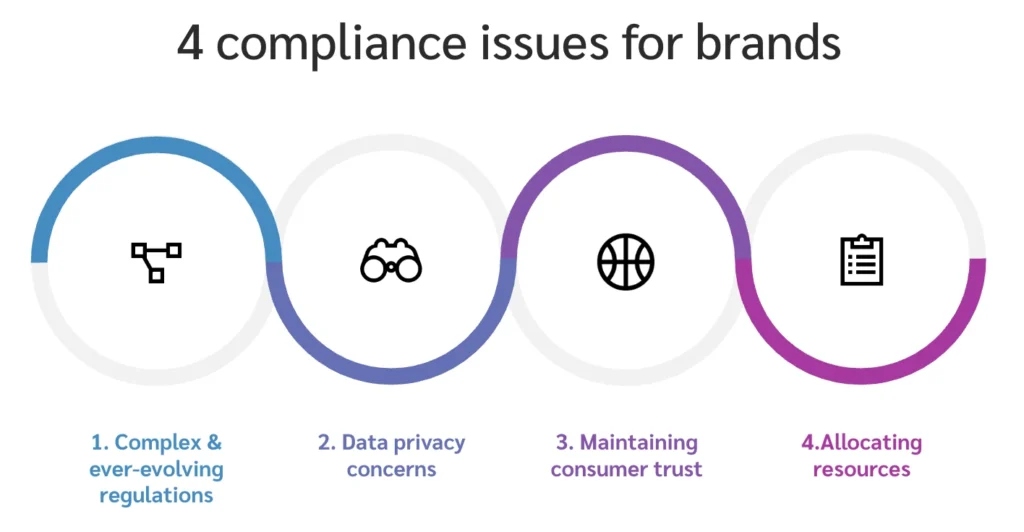
| Challenge | Description & Compliance Insight |
|---|---|
| 1. Complex and Ever-Evolving Influencer Marketing Rules | Regulations shift rapidly at local and international levels. To ensure compliance, brands must stay updated on influencer marketing rules, disclose any material connection (like payment or a free product), and follow FTC guidelines in all social media posts to protect consumers. |
| 2. Data Privacy and Disclosure Requirements | Laws such as the General Data Protection Regulation (GDPR) and California Consumer Privacy Act (CCPA) demand transparency in how brands and influencers collect and use data. Meeting these privacy and disclosure requirements ensures trust and aligns with global legal requirements. |
| 3. Maintaining Consumer Trust Through Transparent Endorsements | Clear and consistent disclosure on social media platforms builds authenticity. Brands that ensure compliance with FTC guidelines and educate creators on proper endorsements protect consumers and strengthen credibility. |
| 4. Allocating Resources for Legal Compliance and Monitoring | Smaller teams can’t always invest heavily in compliance tech, but even basic tools—like standardized influencer contracts and automated monitoring—help ensure compliance, track social media posts, and avoid costly violations. |
How Influencer Marketing Compliance Mitigates Risk and Public Backlash
What’s worse than an FTC fine? Watching an influencer torpedo your brand’s credibility in real-time. Prevention costs less than reputation repair.
TikTok mega-influencer Mikayla Nogueria collaborated with L’Oreal’s Telescopic Lift mascara. Nogueria did disclose her paid partnership, but viewers alleged she added fake eyelashes off-camera at the end of her video. This misled consumers about the product’s effectiveness. As a result, both Mikayla and L’Oreal experienced significant backlash.

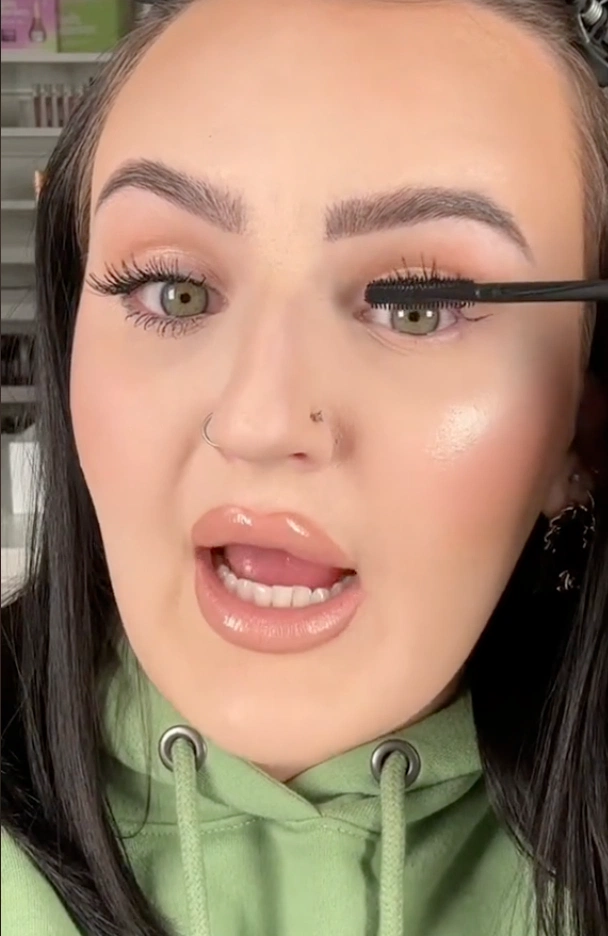
Mikayla Nogueira’s L’Oreal TikTok went viral for all the wrong reasons, sparking major backlash from consumers for its perceived inauthenticity.
Automate Influencer Marketing Compliance Workflows with impact.com
Staying complaint without the right tools can pump the brakes on your productivity. With impact.com/creator, you can automate key compliance standards to keep your influencer campaigns transparent and credible without the heavy lifting.
Here’s how impact.com/creator simplifies the process:
- Tailored and standardized contracts
- Workflow automation
- Social Monitoring
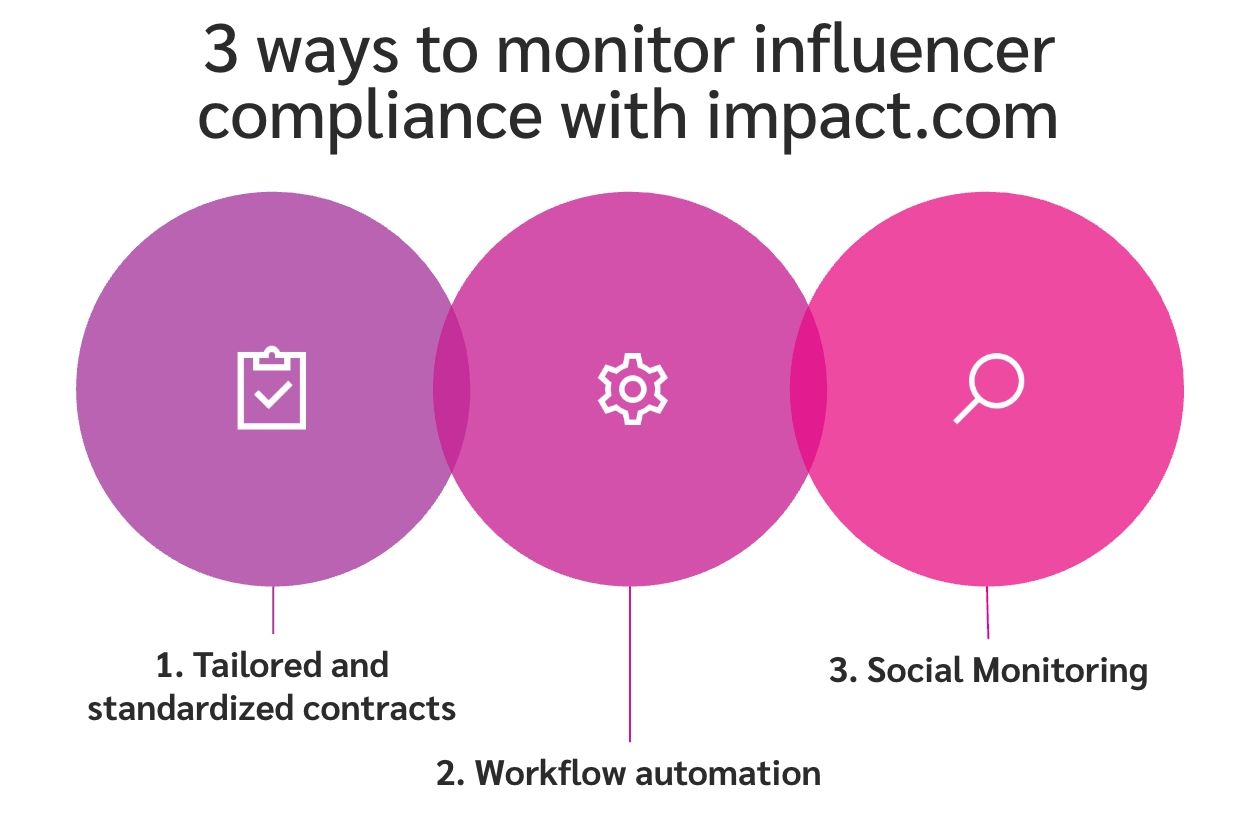
1. Tailored Influencer Contracts that Ensure Compliance
Think of contracts as your partnership playbook—impact.com makes writing them a breeze. Start with our battle-tested standard terms, or craft your own custom agreements that fit your brand perfectly.
Got a winning contract formula? Roll it out to your whole creator squad at once, or fine-tune terms for individual partnerships.
Best of all, when everyone knows the game plan from day one, those awkward “but I thought…” conversations become a thing of the past. It’s amazing how clear expectations can turn a one-off campaign into a lasting creative partnership.
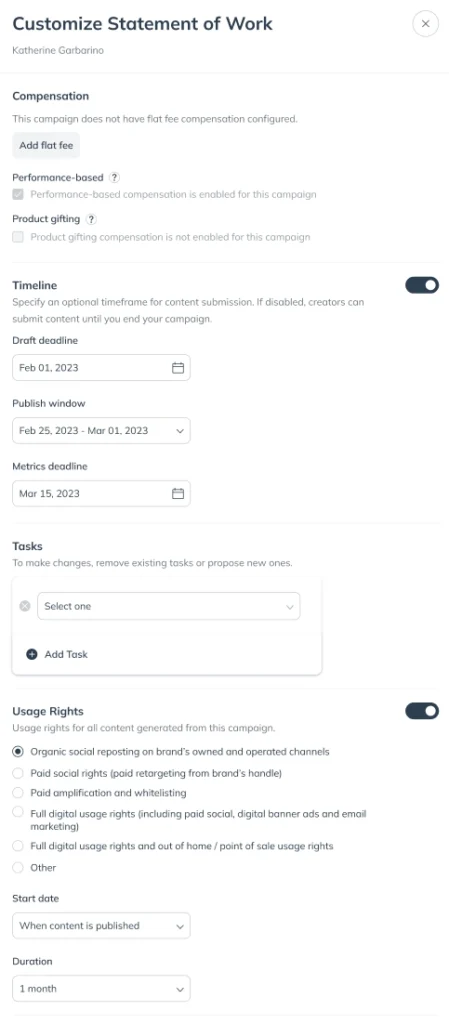
2. Workflow Automation to Simplify FTC Disclosure Requirements
Built-in contract terms set clear rules of engagement from day one—no confusion, no surprises. And campaign briefs clearly outline these terms, strengthening compliance expectations and reducing misunderstandings.
The approval process is refreshingly simple. When creators submit their content, you’ll get an automatic heads-up in your inbox. Jump into the platform to review their work, and either give it the green light or share quick feedback.
Need to bounce ideas back and forth? The built-in messaging keeps your conversations flowing right where you need them, no endless email threads required.
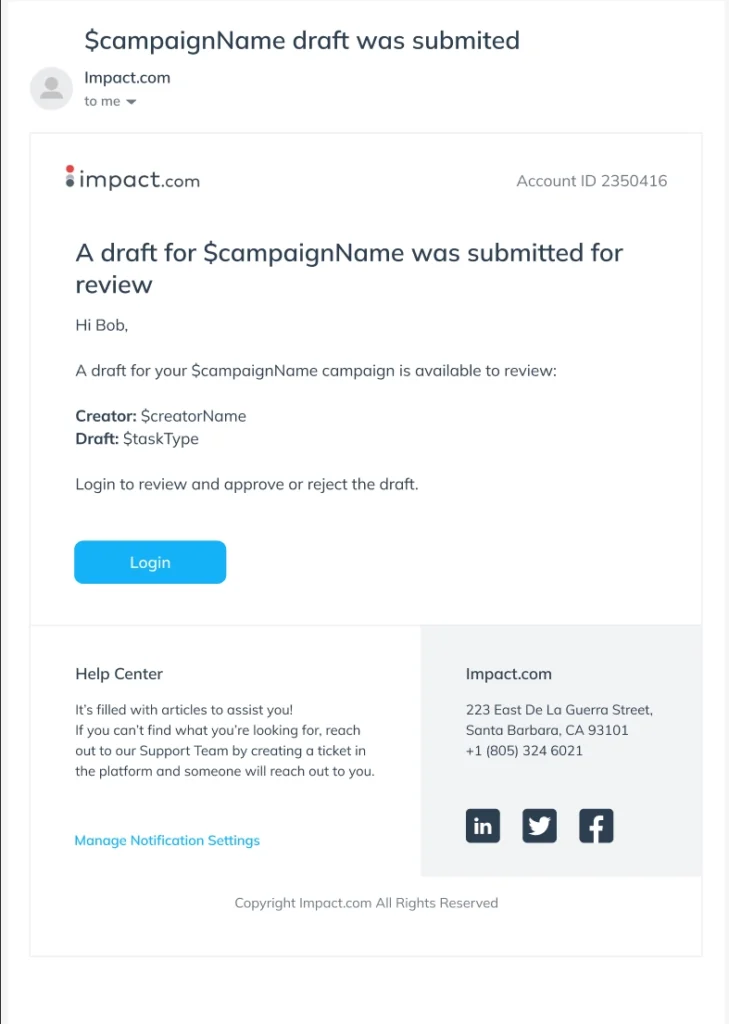
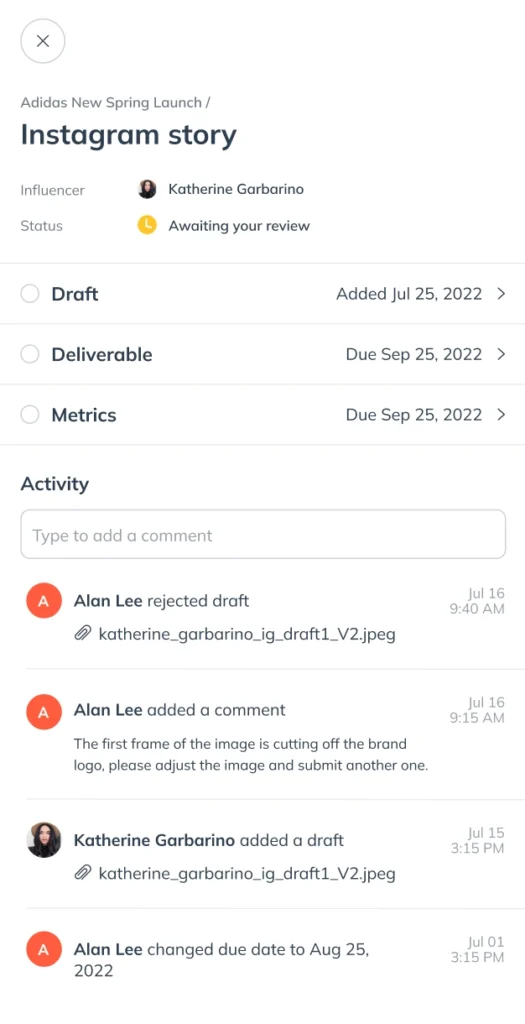
3. Social Monitoring to Keep Your Influencer Partnerships Compliant
Let’s talk about protecting your brand’s reputation. While transparent partnerships build trust, keeping track of what every creator posts can feel like herding cats. That’s where impact.com’s Social Monitoring becomes your secret weapon.
Think of it as your brand’s safety net. It automatically tracks everything from promo code mentions to social posts, helping ensure all commercial communications meet FTC Endorsement Guides and disclosure and labelling requirements.
Instead of frantically searching through social media feeds or hoping creators remember disclosure guidelines, you get a bird’s-eye view of all your partnerships.
Spot a post that needs tweaking? You’ll know instantly. Missing disclosure tags? You’ll catch them before they become problems. It’s like having a dedicated brand guardian working around the clock.
Here’s how it helps you stay compliant:
- Monitor brand safety: Confirm that influencer content aligns with your brand guidelines and properly discloses sponsored or product placement posts.
- Resolve compliance issues fast: Message partners directly through the Creator platform to clarify disclosure expectations, provide feedback, or request quick edits.
By streamlining regulatory compliance, Social Monitoring helps protect your campaigns — and your reputation — while strengthening transparency and trust.
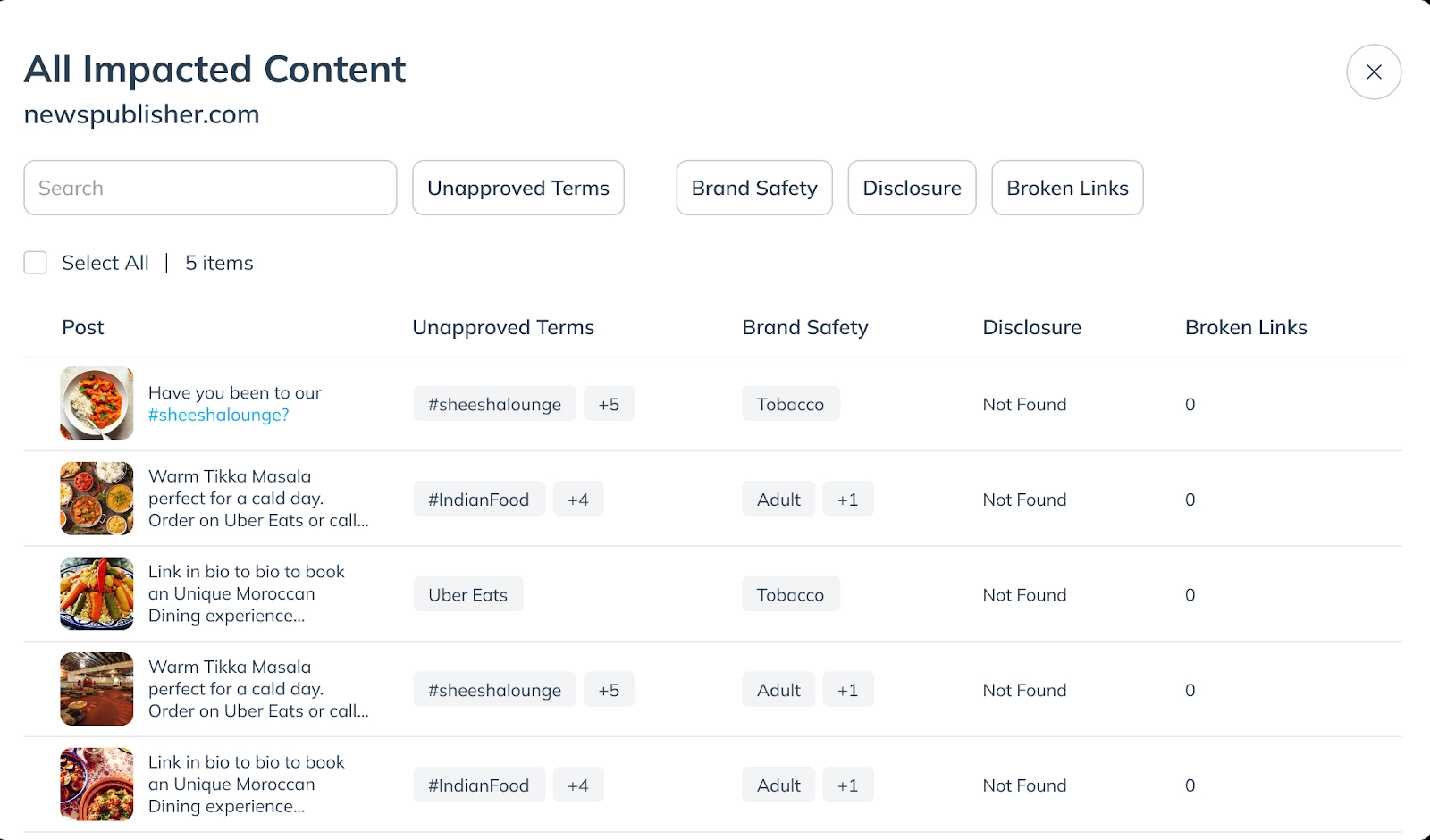
- Resolve compliance issues fast: Message your partners on the Creator platform to address concerns, give feedback, or request content changes.
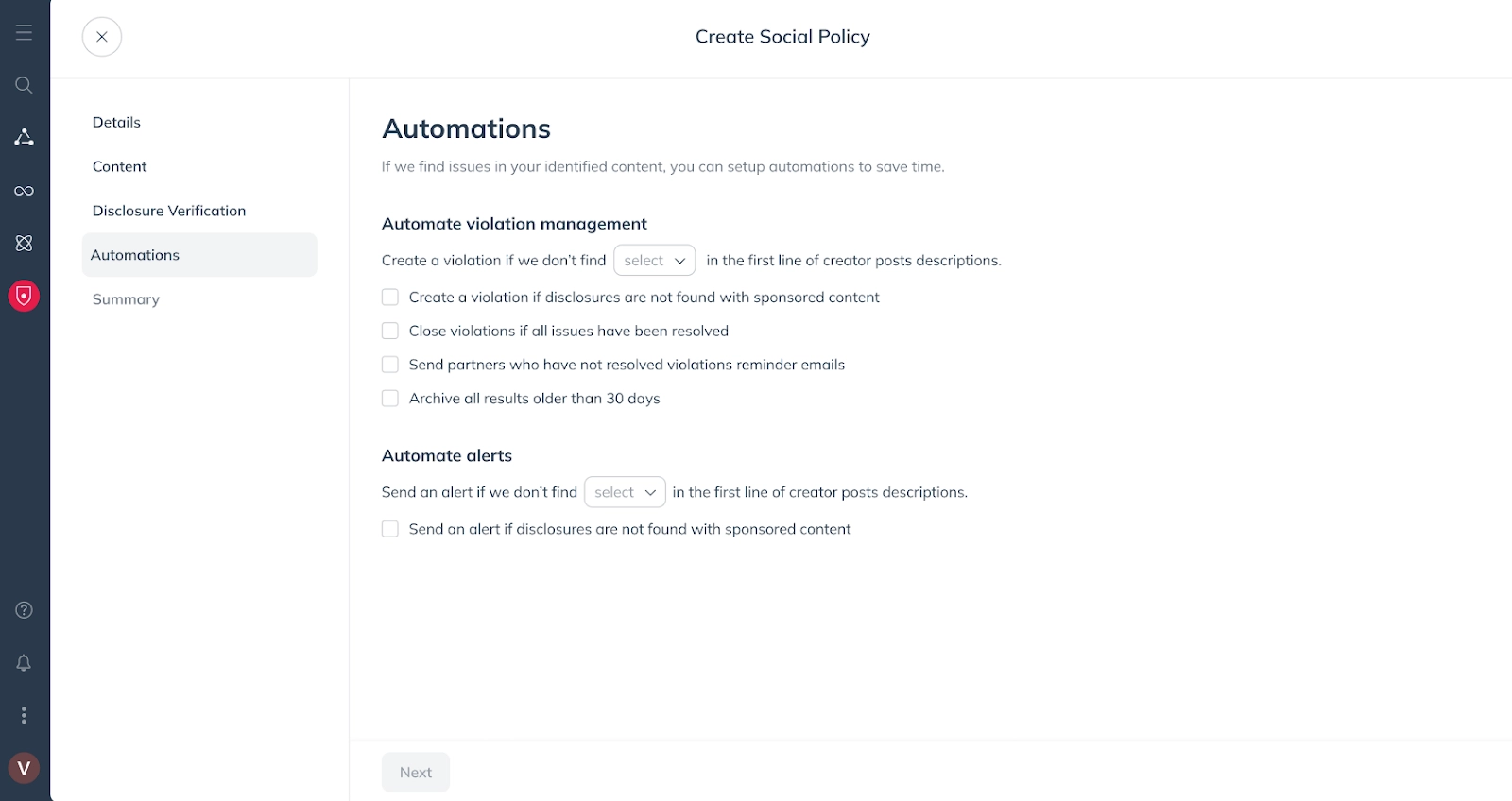
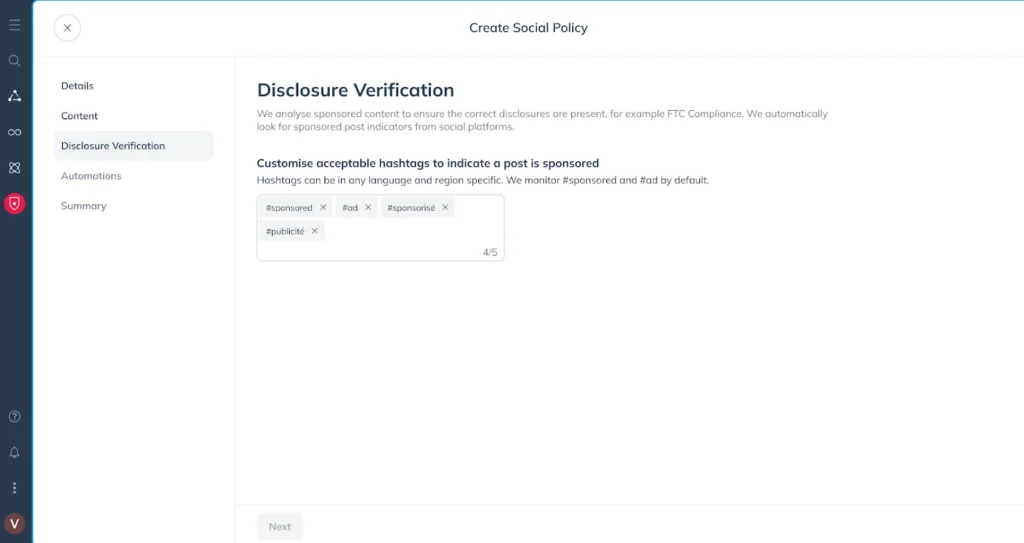
Build Lasting Trust with Transparent and Compliant Influencer Partnerships
In the influencer marketing industry, true success goes beyond reach or ROI, it’s built on trust and transparency. Following FTC Guidelines and other global legal requirements isn’t just about avoiding penalties; it’s how brands and social media influencers earn lasting credibility with their audiences.
By using modern influencer platforms like impact, brands can align every social media endorsement with best practices for influencer partnerships. From airtight contracts to automated disclosure workflows, these tools simplify complex regulations for influencer marketing while strengthening partnerships.
When your brand plays by the rules, everyone benefits — your audience feels informed, creators feel protected, and your team stays confident knowing each collaboration meets the highest ethical and regulatory standards. In short, transparency isn’t just compliance — it’s your strongest competitive advantage.
Influencer Marketing Compliance FAQ
Influencer marketing compliance refers to following legal regulations on influencer marketing, including FTC guidelines, advertising labelling rules, and global consumer protection laws. Compliance protects brand–influencer relationships, prevents surreptitious advertising, and ensures transparency for consumers.
Brands and influencers must disclose any material connection, avoid misleading advertising messages, and comply with the Guides Concerning the Use of Endorsements and Testimonials in Advertising. Some sectors—such as financial products or nicotine products—have additional advertising regulations and mandatory compliance obligations.
In the U.S., the FTC enforces disclosure rules. In the UK, the Advertising Standards Authority (ASA) oversees advertising practice. Across the EU, the Digital Services Act and national advertising codes regulate influencer activity, including virtual influencers and child influencers. All frameworks share one core requirement: transparent, clearly labelled advertising.
The FTC requires influencers to provide clear, conspicuous disclosures (like “#ad”), ensure claims are truthful, and avoid deceptive or native advertising. Influencers must follow FTC Endorsement Guides and the Rule on the Use of Consumer Reviews and Testimonials when referencing consumer reviews or product claims.
Disclosure protects consumers from hidden marketing, meets transparency requirements under consumer protection associations, and prevents content from being classified as deceptive or surreptitious advertising. Clear labelling helps maintain trust and avoids legal penalties.
Typical challenges include fast-changing regulations, inconsistent disclosures, cross-border legal requirements, managing influencer agreement contracts, and monitoring advertising posts at scale. Influencer agencies and brands also struggle with verifying claims and ensuring transparency across multiple advertising sectors.
Penalties vary by region but can include FTC fines, ASA rulings, takedown orders, breach of contract penalties, or reputational damage. Non-compliant ads can violate consumer protection law and lead to costly remediation or loss of partnership opportunities.
Use standardized influencer agreement contracts, provide clear disclosure rules, and educate creators on applicable regulations. A strong influencer policy outlines obligations on influencers, agency partners, and brand ambassador managers to prevent violations.
Monitor all advertising activities across social media platforms, verify proper advertising labelling, track disclosure consistency, and review sponsored content for accuracy. AI-powered tools help detect missing disclosures, misleading claims, or violations of advertising standards.
Platforms like impact.com/creator automate compliance workflows, monitor social media posts for proper disclosures, scan for surreptitious advertising, flag high-risk content, and centralize approvals. Automation reduces manual oversight and ensures practices remain aligned with legal regulations.





